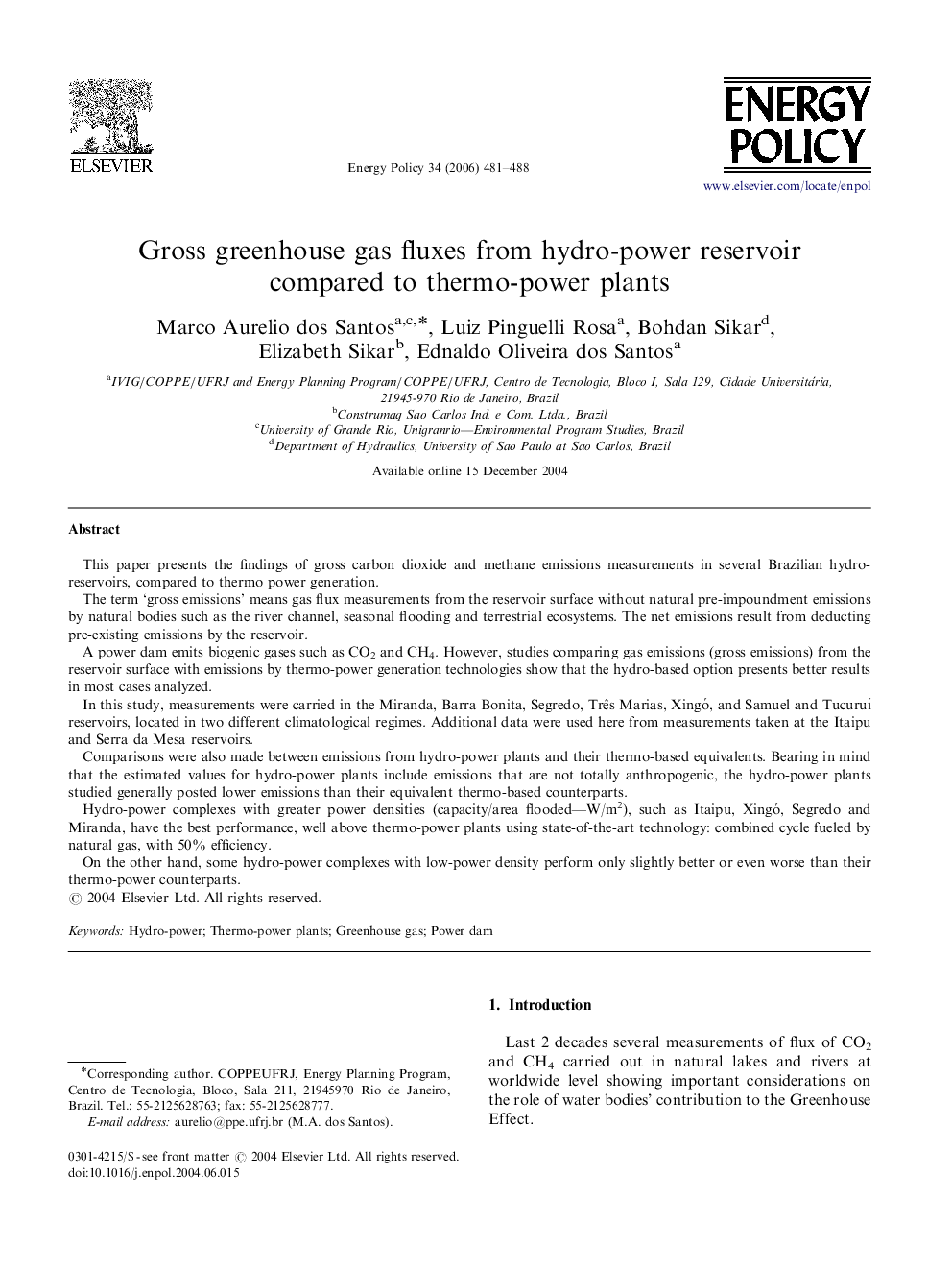| کد مقاله | کد نشریه | سال انتشار | مقاله انگلیسی | نسخه تمام متن |
|---|---|---|---|---|
| 997281 | 936356 | 2006 | 8 صفحه PDF | دانلود رایگان |

This paper presents the findings of gross carbon dioxide and methane emissions measurements in several Brazilian hydro-reservoirs, compared to thermo power generation.The term ‘gross emissions’ means gas flux measurements from the reservoir surface without natural pre-impoundment emissions by natural bodies such as the river channel, seasonal flooding and terrestrial ecosystems. The net emissions result from deducting pre-existing emissions by the reservoir.A power dam emits biogenic gases such as CO2 and CH4. However, studies comparing gas emissions (gross emissions) from the reservoir surface with emissions by thermo-power generation technologies show that the hydro-based option presents better results in most cases analyzed.In this study, measurements were carried in the Miranda, Barra Bonita, Segredo, Três Marias, Xingó, and Samuel and Tucuruí reservoirs, located in two different climatological regimes. Additional data were used here from measurements taken at the Itaipu and Serra da Mesa reservoirs.Comparisons were also made between emissions from hydro-power plants and their thermo-based equivalents. Bearing in mind that the estimated values for hydro-power plants include emissions that are not totally anthropogenic, the hydro-power plants studied generally posted lower emissions than their equivalent thermo-based counterparts.Hydro-power complexes with greater power densities (capacity/area flooded—W/m2), such as Itaipu, Xingó, Segredo and Miranda, have the best performance, well above thermo-power plants using state-of-the-art technology: combined cycle fueled by natural gas, with 50% efficiency.On the other hand, some hydro-power complexes with low-power density perform only slightly better or even worse than their thermo-power counterparts.
Journal: Energy Policy - Volume 34, Issue 4, March 2006, Pages 481–488